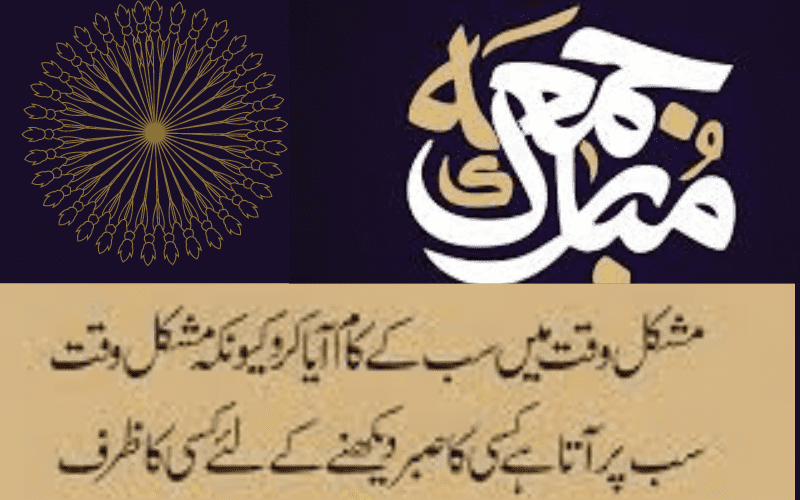Introduction to Jumma Mubarak in Arabic


“Jumma ” (جمعة مباركة) is a term that holds great spiritual importance for Muslims all around the world. The word is used to wish others a blessed Friday, a day of great significance in Islam. In Arabic, “Jumma” (جمعة) means “Friday,” and “Mubarak” (مباركة) means “blessed.” Thus, “Jumma Mubarak” means “Blessed Friday,” a day dedicated to prayer, meditation, and fellowship.

The Importance of Jumma Mubarak in Islam
Friday, or “Yawm al-Jum’ah” (يوم الجمعة), is considered the holiest day of the week by Muslims. Salat al-Jumu’ah, or congregational prayers, take place in mosques all across the world on this day. The Quran emphasizes the importance of this day in Surah Al-Jummah where Muslims are urged to abandon their worldly pursuits and attend Friday prayers. The word ” is frequently used to remind Muslims about the significance of this day and to urge them to participate in spiritual activities.
Jumma Mubarak in Arabic Culture
In many Arabic-speaking nations, “Jumma ” is more than a greeting; it is a cultural statement reflecting the community’s religious ideals. On Fridays, families gather to pray, share meals, and reflect on their religion. The day begins with a special sermon, or “Khutbah” (خطبة), delivered by the Imam, highlighting the teachings of Islam and offering instruction on living righteously. The usage of “jumma” in Arabic adds cultural and religious importance, making it a popular term among friends and family.
Spiritual Practices Associated with Jumma Mubarak in Arabic Tradition
In Arabic-speaking communities, the day of Jumma is celebrated with a variety of spiritual traditions. Muslims are recommended to read Surah Al-Kahf (سورة الكهف) on this day, which is thought to bring protection from life’s difficulties. Giving charity, also known as “Sadaqah” (صدقة), is highly recommended for purifying riches and seeking Allah’s grace. These acts are frequently followed by the sharing of the word “Jumma Mubarak,” which symbolizes the hope for blessings and peace.
The Phrase “Jumma Mubarak” in Arabic Calligraphy

Arabic calligraphy is a centuries-old art style that expresses religious devotion. The word “Jumma ” is frequently inscribed in elegant calligraphy, acting as a reminder of the importance of Friday. These calligraphic drawings are displayed in mosques, Islamic centers, and houses to represent the spiritual significance of the day. When written in Arabic, the phrase may be a beautiful expression of faith as well as a reminder of the bounties of Jumma.Jumma Mubarak: A Day of Blessings and Peace
Jumma, or “Blessed Friday,” is a significant day for Muslims worldwide. This holy day offers an opportunity for reflection, prayer, and seeking Allah’s blessings. It’s a time to connect with family, offer special prayers like Salat al-Jumu’ah, and recite Surah Al-Kahf.
Wishing “Jumma” to loved ones conveys hope, peace, and spiritual harmony. It reminds us to seek forgiveness, show gratitude, and spread kindness. As we embrace this blessed day, let’s remember the importance of compassion, faith, and unity. May Allah fill your heart with peace, your soul with light, and your life with endless blessings. to all!
Conclusion: The Blessings of Jumma in Arabic
“Jumma ” in Arabic is more than just a greeting; it represents Islamic beliefs and cultural customs. This statement captures the spiritual core of Friday, a day reserved for prayer, meditation, and community. For Muslims, reciting “Jumma ” is a means to connect with their faith, ask blessings, and foster a feeling of community among believers. The significance of this term among Arabic-speaking cultures emphasizes the similar principles that unite Muslims beyond geographical borders .Jumma Mubarak! May your day be filled with blessings, peace, and spiritual reflection.
